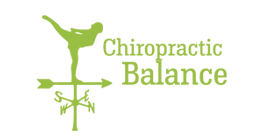Good health starts with what you eat. I love eating organic food whenever I can as not only does it taste better but I feel so much better when I do. However it is not always available or affordable. Here are some tips on eating organic and the reasoning behind it.
WHAT IS ORGANIC FOOD?
According to the Organic Foods Production Act, the definition of an organic product is “animal products sold or labeled as organically produced are not given any kind of antibiotics or growth hormones, are only fed with organic feed and are not administered any type of medication aside from vaccinations or to treat illness…
Fruit and veggies can only be called certified organic if they have been packaged, harvested, raised or grown without the use of synthetic chemicals including antibiotics, pesticides, fertilizers, insecticides or growth hormones. Certified organic also means the produce has not been genetically modified.
WHAT ARE THE HEALTH BENEFITS OF ORGANIC FOOD?
- Better Nutrition, this study found that organic fruits and veggies contain 27% more vitamin C, 21.1% more iron, 29.3% more magnesium, 13.6% more phosphorus, and 18% more polyphenols than non organic produce.
- No Pesticides. The function of pesticides is to poison things. Food that’s grown with the use of pesticides and herbicides carry this potential risk to the consumer. Also when a plant is left to grow of its own accord without pesticides, the plant creates substances within itself to help ward off pests. These substances not only protect the plant, they also often behave as antioxidants when consumed by humans.
SO WHAT SHOULD I BUY IF I CAN’T AFFORD TO BUY ORGANIC?
GROW YOUR OWN
Even if you don’t have a lot of time or space, it is still possible to grow your own herbs or vegetables. I’ve seen some amazing organic herb gardens on balconies, and smaller vegetables such as cherry tomatoes can be grown in pots.
WHEN GROCERY SHOPPING
While it would be nice to buy everything organic, it’s simply not possible for a lot of people all of the time.
Prioritise quality meat, eggs and dairy products. This way you can limit your exposure to the use of hormones and antibiotics found in conventional products. In addition to the benefit of avoiding these additives, you are also making an ethical stance to support the humane treatment of animals.
Here is a handy guide buying fruits and vegetables organically. You’ll notice that a lot of the produce on the Clean Fifteen list has thick skin. This allows the produce to protect its edible parts from pesticides, meaning it’s safer for eating and better for your health. Think apples (on the dirty list) vs. avocados (on the clean list).
This list will help you allocate your budget to the foods that should be bought organically, and which foods have less pesticides and chemicals and are ok to buy conventionally if your budget doesn’t stretch
THE CLEAN FIFTEEN AND THE DIRTY DOZEN
The Clean Fifteen and the Dirty Dozen is a list that details produce that has both the least and most amount of pesticides. This is a great place to start when choosing what produce is crucial to purchase organic, and what is passable as non-organic. It might even be helpful to take with you on your next shopping trip.
#Tip
To save money, buy the clean fifteen items conventionally and wash at home in a bath of warm water with 4 Tablespoons of apple cider vinegar. This helps remove any pesticides it may contain.
Shopping seasonally is cheaper, more nutriousous and tastes better too.
Shopping at Farmers Markers supports the economy.
WHERE TO BUY?
- Common Sense organics has 5 branches in Wellington- CBD, Kilbirnie, Johnsonville, Lower Hutt and Kapati Coast
- Thorndon Farmers Markets every Saturday 8.30am-12.30pm
- CSA – Wairarapa Eco Farm is an organic collective that allow you to order a weekly fruit/veg harvest share. The great news is that we have a pick up location at Chiropractic Balance Mana each wednesday . Check out http://wefs.co.nz/ for more info
https://ueat.utoronto.ca/eating-organic/


